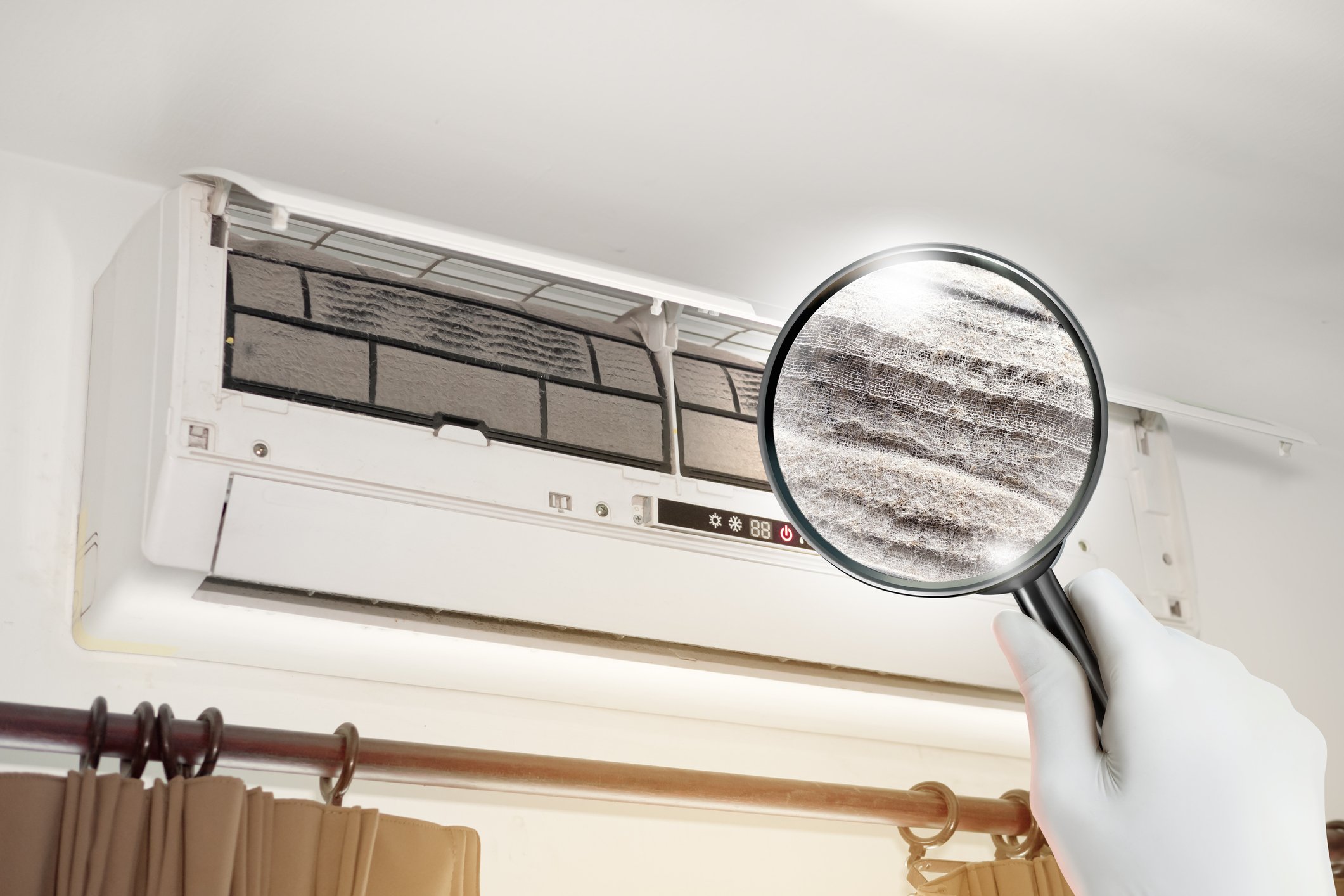How Do Air Conditioner Filters Work? The Science Behind Cleaner Air.
Air conditioner filters work by capturing and trapping dust and debris from the air, preventing them from circulating in the environment and improving indoor air quality. Neglecting to change or clean air filters regularly can result in clogging and reduced filtration efficiency, leading to problems such as higher energy consumption, poor air quality, and potential damage to the HVAC system.
Regular maintenance and replacement of air filters are crucial to ensure optimal performance and long-term functionality of air conditioning units. Thank you.
Importance Of Air Conditioner Filters
Filters play a vital role in the functioning of air conditioners and have a significant impact on air quality and health. The importance of air conditioner filters lies in their ability to improve the air quality by trapping dust, pollen, pet dander, and other pollutants. When the air passes through the filter, dust and debris gets trapped, preventing them from circulating in the air. This helps in reducing allergies, asthma, and other respiratory issues caused by poor air quality. Regularly cleaning or replacing the filters ensures proper air filtration and enhances the efficiency of the HVAC system. Failure to clean or change the air filters can lead to clogged filters, resulting in system inefficiency, higher energy bills, and inadequate air quality. It is recommended to clean or replace the filters every month or two during the cooling season, especially if subjected to dusty conditions or if there are fur-bearing pets in the house.

Credit: www.airassurance.com
Types Of Air Conditioner Filters
There are various types of air conditioner filters that work in different ways to improve air quality and protect the HVAC system. Fiberglass filters are the most common type of filter and are typically disposable. They use a dense mat of fiberglass fibers to capture large particles and debris. These filters are affordable but may not be as effective at removing smaller particles.
Pleated filters have a larger surface area and are more efficient at trapping particles. They are made of pleated synthetic fibers that create a dense filtration barrier. These filters require regular replacement but offer better air quality.
Electrostatic filters use an electrostatic charge to attract and trap particles. They are available in both washable and disposable options. Electrostatic filters are highly efficient and can capture even smaller particles, making them ideal for those with allergies or respiratory issues.
| Type of Filter | Advantages | Disadvantages |
|---|---|---|
| Fiberglass Filter | Affordable | Less effective at removing smaller particles |
| Pleated Filter | Higher efficiency | Require regular replacement |
| Electrostatic Filter | Highly efficient, captures small particles | Costlier, need to be washed or replaced |
Mechanism Of Air Filtration
How Do Air Conditioner Filters Work
Mechanism of Air Filtration
Physical Filtration: Air filters in air conditioners work by physically trapping particles present in the air. The filters are designed to capture various sizes of particles, ranging from larger debris like dust and pollen to smaller particles like mold spores and bacteria.
Size of Particles Trapped: Air filters are rated based on their ability to capture particles of different sizes. The Minimum Efficiency Reporting Value (MERV) rating indicates the effectiveness of a filter, with higher ratings indicating a higher level of filtration.
How Filters Capture Particles: Air filters use various mechanisms to capture particles. This includes mechanical filtration, where larger particles are trapped in the fibers of the filter media, and diffusion, where smaller particles collide with and adhere to the filter fibers.
Electrostatic Filtration: Some air filters also use electrostatic charges to attract and capture particles. These filters have a charged surface that attracts airborne particles, effectively removing them from the air.
How Electrostatic Filters Work: Electrostatic air filters work by creating an electrostatic field that charges particles as they pass through the filter. The charged particles are then attracted to the oppositely charged filter media and are captured.
Attraction of Particles to the Filter: The attraction of particles to the filter is achieved through the combination of electrostatic forces and the physical characteristics of the filter media. This ensures that a wide range of airborne contaminants are effectively removed from the air, resulting in cleaner and healthier indoor air quality.
Factors Affecting Filter Efficiency
Factors affecting filter efficiency include MERV ratings, filter replacement frequency, and maintenance and cleaning tips.
MERV ratings indicate the ability of an air conditioner filter to capture particles of different sizes. The higher the MERV rating, the more efficient the filter is at trapping smaller particles.
Filter replacement frequency is important to maintain optimal performance. Clogged filters can reduce airflow and put additional strain on the HVAC system. It is recommended to replace filters every 90 days or as per manufacturer guidelines.
Regular maintenance and cleaning of the filters is essential to ensure their effectiveness. Filters should be cleaned or replaced if visibly dirty. Vacuuming or washing washable filters can help remove dirt and debris, while disposable filters should be replaced with new ones.
By understanding these factors and following proper maintenance practices, you can ensure that your air conditioner filters work efficiently to improve air quality and prolong the life of your HVAC system.
Frequently Asked Questions Of How Do Air Conditioner Filters Work
What Happens If You Don’t Change Air Filter In Ac Unit?
Not changing the air filter in the AC unit can lead to clogging with dust and debris, causing issues like system inefficiency, higher energy bills, inadequate air quality, and potential failure. Regularly changing the filter is important for proper air filtration.
How Often Do You Need To Clean Your Air Conditioner Filter?
Clean or replace your air conditioner filter every month or two during the cooling season. Filters may require more frequent cleaning if the AC is used constantly, exposed to dusty conditions, or if there are pets in the house. Regular maintenance helps ensure optimal performance and air quality.
Do Ac Filters Purify Air?
Yes, AC filters can purify the air. They remove dust and debris, improving air quality and preventing clogs in the HVAC system.
Do Ac Air Filters Make A Difference?
AC air filters make a difference by improving air quality, preventing dust and debris from circulating, and reducing potential health risks. Regularly changing or cleaning filters is essential for efficient HVAC system operation and energy savings. Neglecting filter maintenance can lead to system inefficiency, higher energy bills, and poor air quality.
Conclusion
Regularly changing and cleaning air conditioner filters is crucial for optimal performance. Neglecting filter maintenance can result in clogs that impede airflow and reduce the unit’s efficiency. This not only drives up energy costs but also compromises air quality, leading to potential health issues.
By understanding how air filters work and taking the necessary steps to keep them clean, you can ensure your HVAC system operates smoothly, provides clean and fresh air, and maintains a comfortable indoor environment for everyone. Don’t underestimate the power of a clean air conditioner filter!






